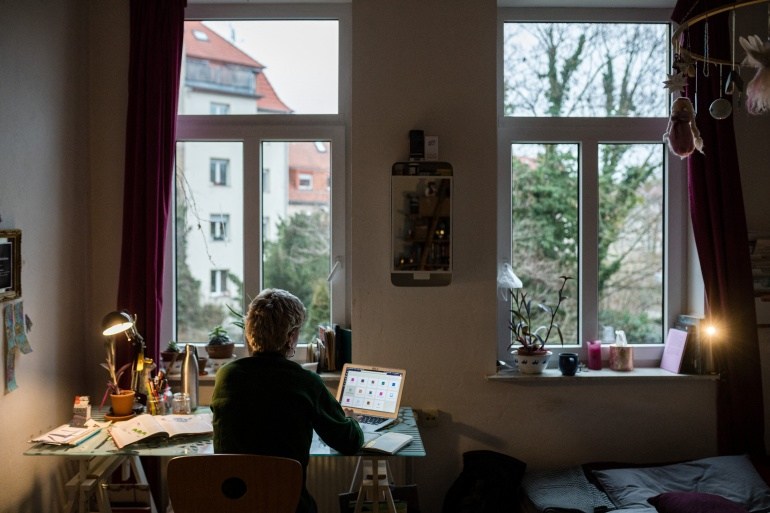As the prospect of going back to normal working patterns becomes a little more likely (though by no means guaranteed) there’s a lot of discussion about whether for many people ‘normal working patterns’ will ever return.
In the academic world there’s talk of ‘blended learning’ and how lecturers forced to become tech-savvy will start spending more time teaching away from the classroom with seminars online. Meanwhile the European Commission has talked of selling off some of its buildings in the expectation of more days being spent working from home.
Some people have started to talk up the joys of homeworking as an opportunity to cut down on time commuting (fewer traffic jams?) and a chance to multitask, as men and women learn to mix chores and childminding with teleworking.
Though I’ve no doubt that some useful lessons have been learned from compulsory stay-at-home during the pandemic, I would suggest that for three reasons these expectations of a new way of working are rather exaggerated.
The first is technical. Online conferences, seminars and so on are a great opportunity but they often go wrong. Someone has no sound. Someone has no picture. The internet is down. The helpdesk is called and tells you that you’re sixth in line for assistance, please hold the line. It doesn’t happen often, but it happens enough to be annoying. A classroom may be old-fashioned, but it doesn’t often go dark because the lecturer disappears from sight through a hole in the floor.
The second reason is social. Colleagues have missed seeing each other – even though they’ve seen them online. Even seeing people you don’t know has been pleasant, as the masks come off and those you pass in the street don’t appear like burglars looking for a bank to rob.
The third reason is more ideological. I’m not convinced by much of the language used to talk up future arrangements. People speak of ‘hot desking’, as if you’d be happy to find the seat still warm from the bum of the last person to sit there when you take your turn in the queue for somewhere to work. ‘Hot desking’ essentially means that you can forget about having somewhere at work you can call your own. And ‘multitasking’ isn’t quite the breakthrough science of effective working it’s made out to be.
The term used in the past was ‘scatterbrained’ and it meant an inability to concentrate because of distractions piling in. Half a century ago a lot of women were desperate to get employment and move away from a lifetime in the home; now they are sometimes portrayed as if all they wanted was to find a job and then bring it back home to add to all their other tasks.
If the European Commission was wise, it would wait and see how its staff respond to the end of the pandemic (assuming the end is coming soon). Universities could ask the students who’ve spent a long time in confinement how blended they’d like their learning to be in future.
As for the traffic, after all the work to make biking easier and safer, public transport more efficient, car-sharing more acceptable and the cars themselves less polluting, is stopping people having any incentive to leave the house the best way forward?
It’s my hunch that we’re under-estimating how much people want to get out and about. It will take us time; like rabbits emerging from burrows, we may blink a bit and move slowly at first. But then we will want to scurry about again.
It might not be fun to be squashed into a crowded bus, but human contact has been missed more than some people think. In any case, my fervent hope is that the pandemic will go away enough for us to find out.

